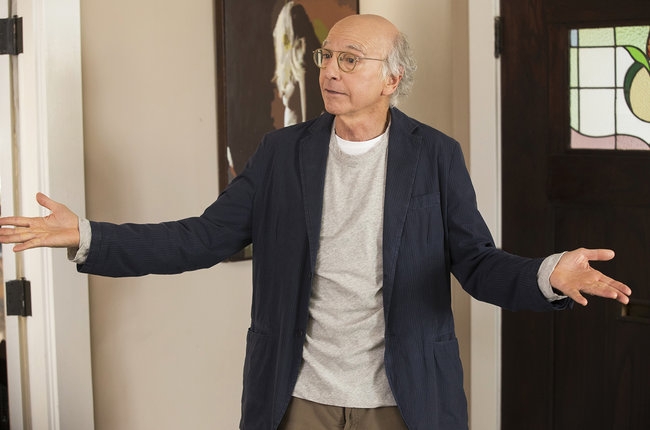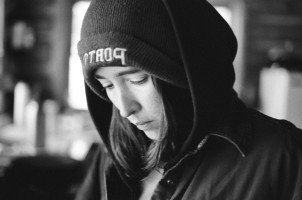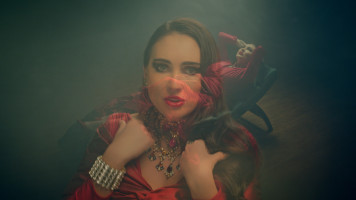When Larry David’s acclaimed comedy series Curb Your Enthusiasm premiered on HBO 17 years ago this month, the inaugural episode kicked off much like every subsequent episode throughout its nine-seasons-and-counting run: first with the universally-familiar sound of static accompanied by the network’s logo, followed by a circus-like theme song complete with a goofy tuba riff, cartoonish melody, and playful mandolin. Thanks to its sheer uniqueness, the brief track has firmly planted itself in the pantheon of television theme song history, an instantly recognizable introduction to the cult-favorite comedy that’s become a one of HBO’s most iconic original series.
However, everything from the impetus of the show’s soundtrack to the idea of doing a series in the first place was somewhat of a happy accident. “I had been in L.A. for about 10 years editing comedy shows and documentaries when I had a tryout to edit a one-off HBO mockumentary special for Larry David," says Steve Rasch who’d soon become the longtime editor and music supervisor for Curb (including its latest season, which premiered earlier this month). “They tested me first to see if I could do that kind of editing because it was a strange hybrid (of a fictional documentary). I got the gig and Larry loved the process for the special so much he went forward with a series about a year later.” While that one-off special was musically different (Rasch simply relied on piano ‘cocktail music’), it was later during the process of cutting the series and working alongside David that the team hired a composer to score the series and mimic on a synthesizer the sound of a particular song David had heard in a commercial for a bank. “It was a low-budget show and he had been asked to create this particular sound, but the samples with the tuba didn’t sound great,” remembers Rasch. “The original analog music trumped it, so we fired the guy.”
That song from the bank commercial, a piece the Italian composer Luciano Michelini originally produced for the obscure 1974 film La Bellissima Estate called “Frolic,” wound up becoming a musical foundation for the series. To get it, Rasch turning to the Los Angeles company Killer Tracks, which employs an immense library of licensable music. (The soundtrack for the film, initially owned by RCA Italy, was later sold to the company.) “Steve came in and he was the best client because he absolutely knew what he wanted,” said Carl Peel, the head of production at Killer Tracks. “He had ‘Frolic,' so he asked for that specific piece, which is the first time anyone had ever done that because usually people will say, 'I’m looking for something upbeat and energetic' and that’s all you have to go on.”

First deployed as temp music during the editing process, Rasch eventually relied on the Killer Tracks library of songs from Italian films of the '50s, '60s and '70s, all in the same vein as “Frolic,” to shape the tone of the series. “If you skip out the music and watch an entire episode, you might feel a little uncomfortable because there’s a lot of arguing,” says Rasch with a laugh. “Larry doesn’t back down and in those moments, when things get a little dark, the music serves the purpose of bringing the energy up. His notes are almost always ‘Something more up, something more up.’ I go to the tubas and it works almost every time. It’s like a high wire act when the guy falls off the wire and they start the music to distract you while they cart away the dead bodies.”
With simply an outline of a story to go on, the actors on Curb famously ad-lib their lines, with each scene made-up on the spot in front of the cameras. Because of this unusual production style, editing the series is an intensive process. “We have a phone-book size transcription for each episode,” says Rasch. “That’s then linked to footage in the Avid (editing system) and then we piece it together. I cut about two or three minutes per day of finished scenes, because the bulk of the material takes me that long.” Initially, Rasch relied on 70 discs of licensed music provided by Killer Tracks, some of which have been repeated multiple times throughout the show’s series. (He eventually expanded his musical repertoire beyond the initial discs.) Stare-down scenes usually employ a Franco Micalizzi-composed track dubbed “The Puzzle,” while transitional cues sometimes use “Amusement,” another Micalizzi track. “We have an ominous The Good, The Bad and the Ugly-type track called ‘For Whom the Bell Tolls’ that has this someone’s-gonna-die vibe,” says Rasch of the cue. “We’ll put that under (Susie Essman’s character) Susie Greene when she’s about to shut down Larry or Jeff Greene (played by Jeff Garlin).” For his efforts, Rasch has won six Emmys for his work on Curb.
“TV shows very often will hire a composer, but this is so unique as the music has become so recognizable,” says Peel. “It’s one of Killer Tracks’ most high profile shows.” As a result, the music from Curb has permeated culture. When Steve Harvey announced the incorrect winner of the Miss Universe pageant in 2015, a clip went viral that subbed in the Curb theme, while an awkward video of President Trump and Governor Chris Christie received the same treatment, soon inspiring the website CurbYourVideo.com. Even Steven Spielberg’s a fan, once noting he used the theme as his ringtone. (“If the phone rings and it is bad news, at least the ring makes me smile,” he told People.) Because of its popularity, a soundtrack for the series was released in 2006.
It’s an impressive feat for a licensed score that was originally subbed in as an afterthought. Says Rasch: “There’s a quote Larry gave to Time: ‘The theme introduces the idea that you’re in for something idiotic.’"








